Jolly Mon
Hero Member
- Joined
- Sep 3, 2012
- Messages
- 868
- Reaction score
- 631
- Golden Thread
- 0
- Primary Interest:
- All Treasure Hunting
- #1
Thread Owner
Some time ago I posted a very early clipping from the Boston News Letter. The clipping could be interpreted to say that 1715 fleet ships sank in Florida AND the Bahamas. I did not give this much credence...it just seemed unlikely for ships to have been cast ashore on both sides of the Bahama Channel by the same storm. I assumed the clipping merely was saying that ships from the Bahamas had gone to Florida to conduct salvage. Here is the clipping:
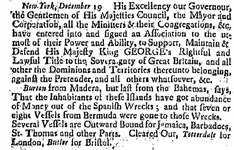 Boston News Letter 12-26-1715
Boston News Letter 12-26-1715
Lord Archibald Hamilton was governor of Jamaica in 1715. After the wreck of the Spanish Fleet, he signed several "commissions" for privateers to "salvage" the 1715 fleet treasure. Henry Jennings operated under a commission from Lord Hamilton, for instance. This was unusual and potentially very damaging because England and Spain were officially at peace at the time. Lord Hamilton was accused of having ulterior motives in signing these "commissions". It was said by some that he had a lust for Spanish Gold himself. Imagine that. He was arrested and carried back to England by the Royal Navy but was later freed. In 1718 he published a small book entitled, An Answer to an Anonymous Libel, in which he defended his actions. Make of it what you will, but the tenor of pages 77 and 78 seem to indicate that at least some salvage WAS carried out in the Bahamas...
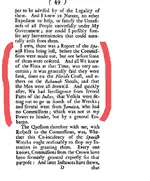
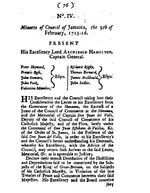
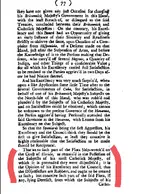
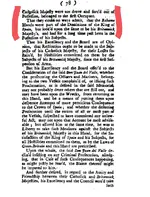

 Boston News Letter 12-26-1715
Boston News Letter 12-26-1715Lord Archibald Hamilton was governor of Jamaica in 1715. After the wreck of the Spanish Fleet, he signed several "commissions" for privateers to "salvage" the 1715 fleet treasure. Henry Jennings operated under a commission from Lord Hamilton, for instance. This was unusual and potentially very damaging because England and Spain were officially at peace at the time. Lord Hamilton was accused of having ulterior motives in signing these "commissions". It was said by some that he had a lust for Spanish Gold himself. Imagine that. He was arrested and carried back to England by the Royal Navy but was later freed. In 1718 he published a small book entitled, An Answer to an Anonymous Libel, in which he defended his actions. Make of it what you will, but the tenor of pages 77 and 78 seem to indicate that at least some salvage WAS carried out in the Bahamas...





Last edited:



